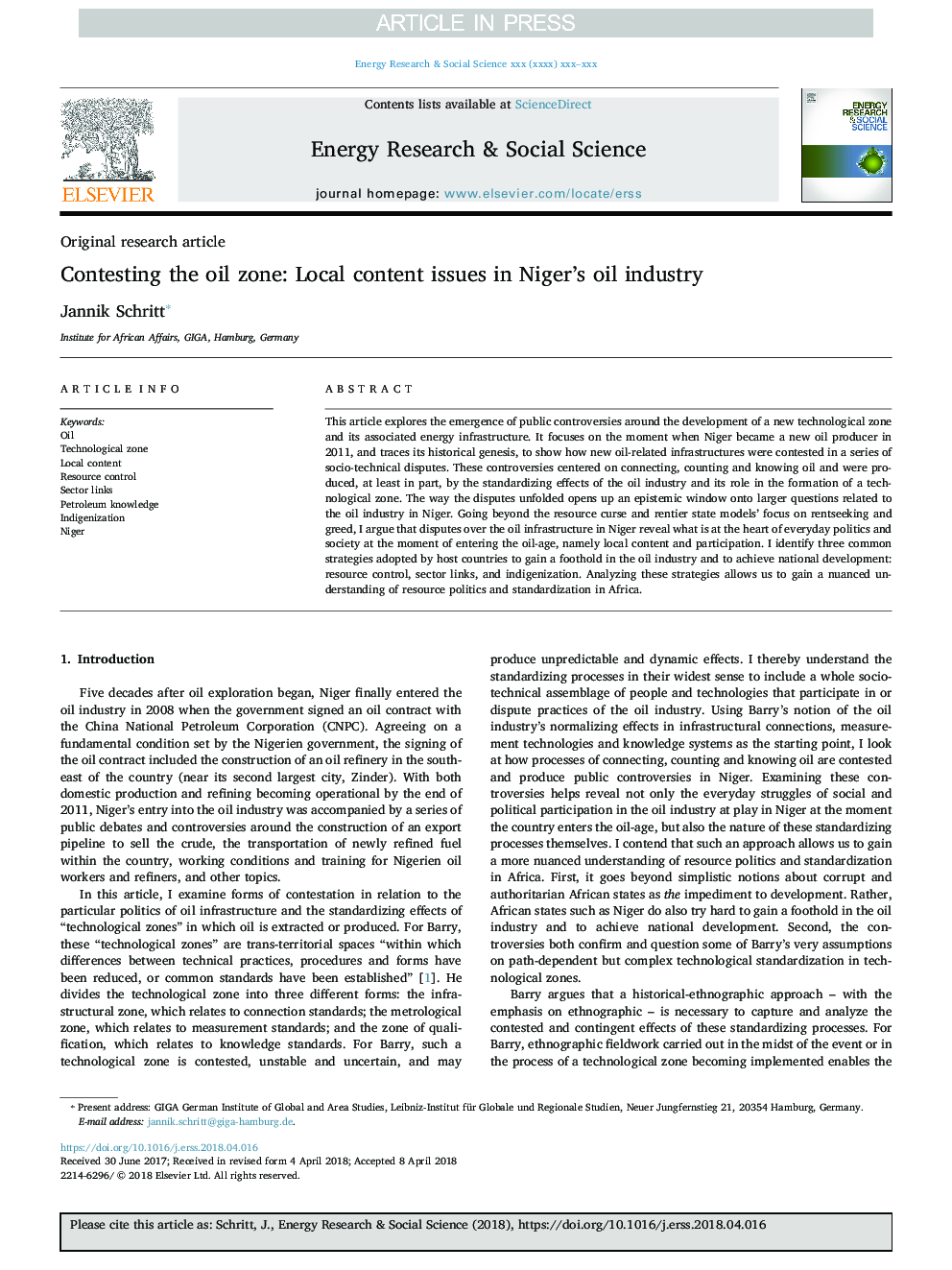| Article ID | Journal | Published Year | Pages | File Type |
|---|---|---|---|---|
| 6557448 | Energy Research & Social Science | 2018 | 11 Pages |
Abstract
This article explores the emergence of public controversies around the development of a new technological zone and its associated energy infrastructure. It focuses on the moment when Niger became a new oil producer in 2011, and traces its historical genesis, to show how new oil-related infrastructures were contested in a series of socio-technical disputes. These controversies centered on connecting, counting and knowing oil and were produced, at least in part, by the standardizing effects of the oil industry and its role in the formation of a technological zone. The way the disputes unfolded opens up an epistemic window onto larger questions related to the oil industry in Niger. Going beyond the resource curse and rentier state models' focus on rentseeking and greed, I argue that disputes over the oil infrastructure in Niger reveal what is at the heart of everyday politics and society at the moment of entering the oil-age, namely local content and participation. I identify three common strategies adopted by host countries to gain a foothold in the oil industry and to achieve national development: resource control, sector links, and indigenization. Analyzing these strategies allows us to gain a nuanced understanding of resource politics and standardization in Africa.
Related Topics
Physical Sciences and Engineering
Energy
Energy (General)
Authors
Jannik Schritt,
